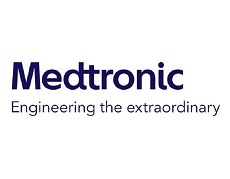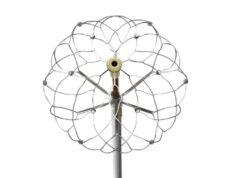 Medtronic recently shared long-term results from the global EV ICD pivotal trial, reinforcing the performance and safety of the company’s extravascular implantable cardioverter defibrillator (EV-ICD) system, during a late-breaking clinical science presentation at the European Society of Cardiology (ESC) congress (30 August–2 September, London, UK).
Medtronic recently shared long-term results from the global EV ICD pivotal trial, reinforcing the performance and safety of the company’s extravascular implantable cardioverter defibrillator (EV-ICD) system, during a late-breaking clinical science presentation at the European Society of Cardiology (ESC) congress (30 August–2 September, London, UK).
A Medtronic press release notes that the Aurora EV-ICD system is implanted below the left armpit, with the Epsila defibrillation lead placed under the breastbone, which is intended to avoid certain risks associated with transvenous ICDs.
The EV ICD pivotal trial is a prospective, multicentre, single-arm, non-randomised, premarket clinical study that assessed the safety and effectiveness of the Medtronic EV-ICD system for patients at risk of sudden cardiac death. Investigators in the study enrolled 356 patients at 46 sites across 17 countries in North America, Europe, the Middle East, Asia, Australia, and New Zealand.
Primary results were published in the New England Journal of Medicine back in 2022, and previously reported safety and effectiveness results have been sustained out to 18 months.
The final results analysis—presented by Francis Murgatroyd (Kings College Hospital, London, UK) at ESC 2024—demonstrated that anti-tachycardia pacing (ATP) was successful in 37 out of 48 episodes (77%), which Medtronic’s release notes is in line with transvenous ATP success. The EV-ICD also effectively terminated ventricular tachycardia/ventricular fibrillation (VT/VF) with 100% shock success of discrete spontaneous episodes.
Additionally, ATP utilisation increased significantly through the duration of study follow-up (average, 30.6 months). ATP—which is nominally ‘OFF’—was reported as programmed ‘ON’ in the majority of patients (81.2%) at 24 months, and no patient with successful ATP had the therapy programmed ‘OFF’ subsequently, according to Medtronic.
In 299 patients with a successful implant, 24 patients experienced 82 spontaneous arrhythmic episodes that were appropriately treated with either ATP only (n=38), shock only (n=34), or both (n=10). The EV-ICD demonstrated a low major complication rate and a high success rate for appropriate therapy, with shocks avoided in nearly half of the episodes due to the availability of ATP.
Medtronic’s recent release states that ATP—which is available on all transvenous ICDs as well as the company’s Aurora EV-ICD—is an effective and safe method to terminate VT, restoring the heart’s normal rhythm by briefly delivering pacing pulses to the heart at a rate faster than the tachycardia itself.
“The final results from the EV ICD pivotal trial confirm the ongoing safety of the procedure and system, and consolidate the benefits of the EV-ICD,” said Murgatroyd. “We also now have increased evidence for the effectiveness and tolerability of ATP, rather than just shocks. This is a fundamental feature built into the EV-ICD, which offers my patients a less painful solution, improved quality of life, and peace of mind, knowing they are protected against sudden cardiac death.”
The EV ICD pivotal trial also examined patient-reported quality-of-life (QOL) metrics and patient acceptance of the device through a standardised, device-specific QOL survey—the Florida Patient Acceptance Survey. EV-ICD patients reported fewer body image concerns and less device-related distress from baseline to six-month follow-up, and also markedly greater overall acceptance of their ICD than subcutaneous ICD (S-ICD) patients, Medtronic claims.
The company’s recent release further states that, as such, its EV-ICD system has displayed safety and effectiveness that persist through long-term follow-up, and reported better quality of life compared to existing S-ICD options.
“The final results of the EV ICD pivotal trial presented at ESC 2024 underscore the longer-term benefits for patients at risk of sudden cardiac death who receive a Medtronic extravascular defibrillator,” said Alan Cheng, chief medical officer of the Cardiac Rhythm Management business, which is part of the Cardiovascular portfolio, at Medtronic. “These findings highlight our commitment to continuing to create innovative products that allow physicians to provide device therapy with the advantages of transvenous defibrillators, while remaining outside the heart and vascular space.”
Medtronic is obtaining real-world performance and safety data on the commercially available Aurora EV-ICD system in the Enlighten study—a global post-approval, prospective, non-randomised, observational, multicentre registry involving more than 125 sites. A minimum of 500 patients will be enrolled, and follow-up data will be collected through the lifetime of the device. The Aurora EV-ICD received CE-mark and US Food and Drug Administration (FDA) approval in 2023, and is now available in 29 countries around the world.









